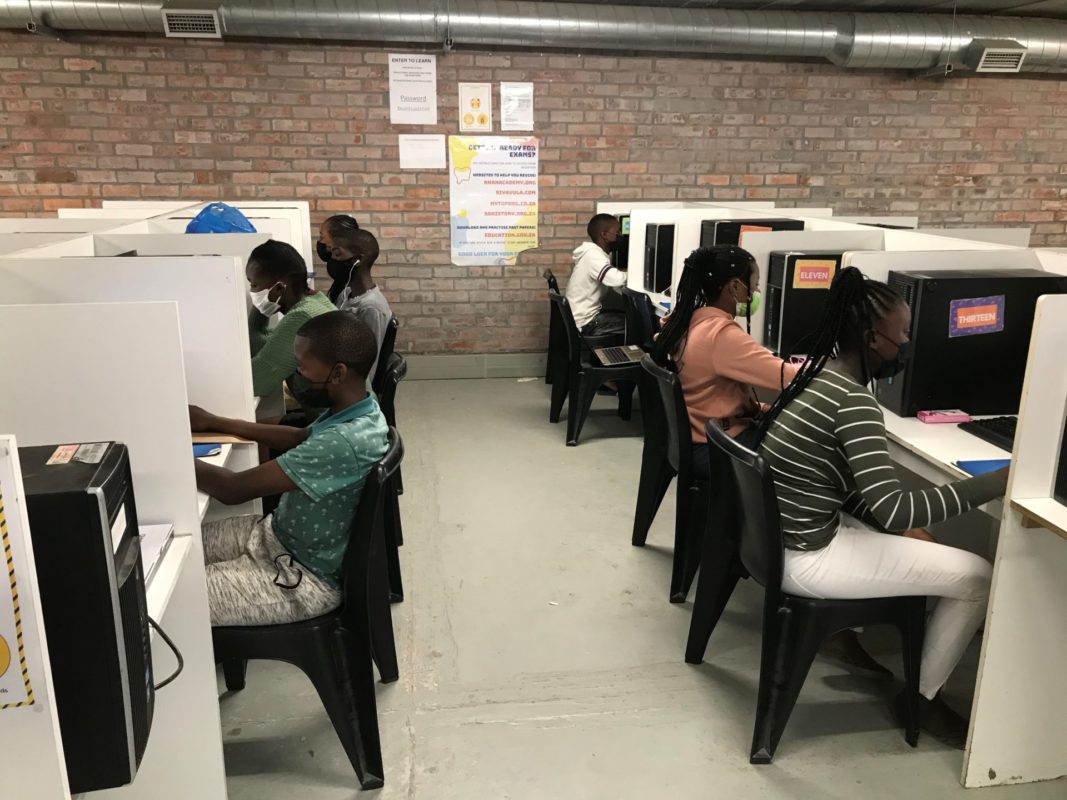To thrive in the digital era, young people need to be fully equipped with digital and technological skills to ensure that they succeed. Elbie Botha, Executive Director of Boost Africa, Western Cape-based grantee – shares how their organisation works daily to achieve this goal.
What does your organisation do to equip youth with digital or e-learning skills?
The Computers Explorers programme aims to address educational inequality by offering a computational thinking programme to Grade 4 – 7 learners in Dunoon.
The Boost Learning Centre, with a well-equipped computer lab and space to study, is open to all learners from Grade 3 to tertiary students. Internet access is freely available to learners to do school project research, study for exams and apply to universities/colleges. Assistance is provided to learners when needed. Our computer lab offers learners the space to do their research for school projects and we also encourage learners to register for Olico, Doodlemaths and code.org. Unplaced high school learners also use our centre in the mornings to do online schooling until they are placed at school.
We have also partnered with the Breteau Foundation who provided us with tablets for our learners who we identified as struggling readers. Reading is so important and a learner who struggles to read will quickly fall behind in all their subjects. They get to take the tablets home for 6 months. The tablets have offline educational content that teaches phonics, reading and basic math.
We also facilitate online shared book reading for struggling readers. They meet up with a reading buddy online and they read to each other for about 30-40min weekly. It is amazing to see how the learners’ confidence grows in reading but also their ability to use the computer. It opens the world of online communication in a very practical way.
Why is it important for youth from under-resourced communities and schools to receive access to digital learning and resources?
South Africans already have unequal access to education and technology and the fourth industrial revolution is only worsening this inequality. Private schools have been ahead of the government in teaching tech-focused skills and, although the government is now introducing subjects like coding and computational thinking, rolling these out in underprivileged schools will be challenging and take time.
A good PC, Internet access and online educational content can open up a whole new world of possibilities for any child. High data costs in the country rob the majority of South Africans off their right to access and ability to partake in the digital economy. With outcomes-based education putting more emphasis on marks for projects throughout the year instead of marks for exams, those with the means to put together five-star projects will sail through school, qualify for university admission, and leave their poorer peers behind.
Besides practical knowledge and access to digital technology, what else do you think South African youth need to thrive?
Despite the risks and adversity some children face, some children still manage to thrive. This can be due to an innate characteristic, but it can also be nurtured by the most basic elements of love, care, and connectedness. American psychologist, Ann Masten, calls this the ‘ordinary magic’ that can build the resilience that enables children to succeed. Creating these safe loving spaces of care and connection is most important for our youth to thrive.
High data costs in the country rob the majority of South Africans off their right to access and ability to partake in the digital economy.
